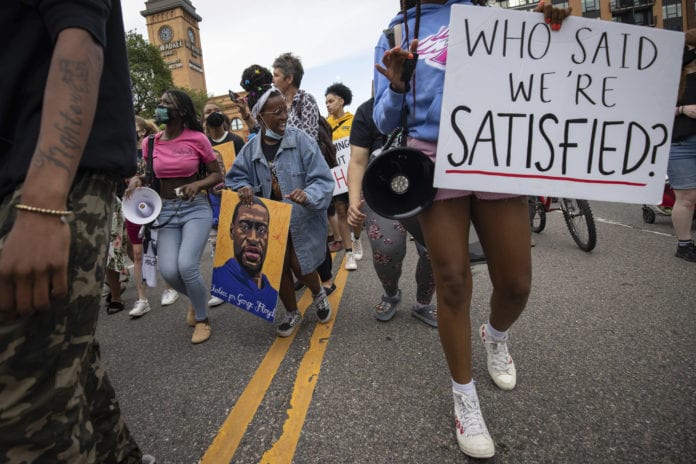For the past 30 years the primary indicator of health in church metrics is weekend attendance. We know that “healthy things grow.” so obviously the faster our church grows the healthier it is. We celebrate the largest and fastest growing churches as the models we all want to emulate. When a new church plant explodes in growth we crowd around the pastor to learn his secrets.
The challenge is that healthy things aren’t the only things that grow. Weeds grow faster than healthy plants, and cancer cells kill the body by growing faster than other, healthier cells. By focusing on numerical-growth church metrics we may inadvertently feed the very thing that could choke out true health.
Another challenge with tracking attendance for church metrics is that it doesn’t always measure what we think it does. I remember talking to another pastor in our community a few years ago. He was excited about the sudden growth he’d seen over the past few months. I wanted to be excited for him, but the church I served had recently gone through a moral failure by a key leader, and our attendance was shrinking at the exact time his was growing. Attendance growth isn’t always as it appears.
Finally, the church metrics of weekend attendance is becoming irrelevant. In a culture of online church, sermon podcasts and declining frequency of attendance even among committed members, the number of people sitting in pews or stack chairs from week to week no longer reflects the true size of a congregation. We need to move beyond butts in seats as a primary measure of the health of a congregation.
So what should we measure? The go to answers are baptisms, giving and small group participation. There is nothing wrong with measuring these areas, but it is still incomplete. To truly understand how healthy we are as a church we have to know how we are caring for the three circles of people we are called to shepherd; our neighbors, our followers and our disciples.
Neighbors
Key word: Compassion
Key questions: Who are our neighbors and how are we easing their pain?
A neighbor is anyone who comes into contact with your church. Neighbors live next door to the church and next door to people who attend your church. Neighbors are the school and city officials who interact with your congregation. Your neighbors are the people who serve your members in restaurants, stores and entertainment venues. Your neighbors may never walk into your church, but they are still your responsibility.
In the story of the Good Samaritan Jesus not only broadens the definition of a neighbor, he shows how to treat our neighbors with compassion. Unlike the religious leaders in the story, the Samaritan has compassion for his neighbor. He bandages his wounds and provides for his needs. He isn’t concerned about where the injured man attends synagogue; he is a neighbor so he cares for him. A major component of the mission of our church is to discover where our neighbors are hurting and how we can help.
A healthy church cares for their neighbors both corporately and personally. When there is a crisis in the community a healthy church is the first to step in to help, and when there is a need in a neighborhood healthy church members are the ones who stand in the gap. Measuring health begins with tracking how compassionately we care for our neighbors. How are we easing their pain?
Followers
Key word: Provision
Key questions: Who are our followers and how are providing for their needs?
A follower is anyone who considers your church their church. This is tricky, because there are a lot of people who claim your church whom you’ve never met. They may attend only on Christmas and Easter, they may drop in a few times a year, or they may just watch online, but a follower would consider your church the place to:
- Get married
- Have a family member’s funeral
- Be baptized
- Dedicate their baby
Regardless how deep their connection, if they consider your church their church they are a follower and you have responsibility for them.
We see Jesus’ provision for followers in the story of feeding of the 5000 when he says to Phillip, “Where shall we buy bread for these people to eat?” (John 6:5) I imagine the disciples thought, “Why are they our problem? They are adults, let them figure it out for themselves. Besides, it would take a miracle to take care for all these people.” Jesus believed, however, that He and the disciples should care even for casual followers.
The bigger your church grows the more followers you attract. Conservatively your church has twice as many followers as average weekend attenders. A church of 300 on Sunday has 600 followers, a church of 3000 has 6,000 followers, and a church of 30,000 on a weekend carries the weight of 60,000 people. That is larger than the town I live in. We love to attract huge crowds, but if we are faithful to Jesus’ example we have to also provide for the needs of the ever growing circle of followers.
Disciples
Key word: Direction
Who are our disciples and how are we helping them grow?
A disciple in this context is anyone committed to the vision, values and mission of your church. It includes the staff, leaders and elders, as well as the committed attenders who support and love your church. You are responsible to do everything possible to ensure the disciples are growing in their faith and reflecting the model of Christ.
The growth of His disciples was Jesus’ primary mission while he was on earth. He taught them, challenged then and rebuked them, all with the goal of seeing them grow in their understanding of him and their commitment to the Kingdom. When he knew his time grew short and the cross loomed ahead, he withdrew with his disciples for one last time. He washed their feet, he fed them, and he taught them the core value of love. As he faced the cross his attention was on the 12 men who would soon abandon him. His commitment to the disciples wasn’t based on how much they gave, led or served; it was based solely on his love and care for them.
This is the commitment we are called to as leaders in the church. We are never told we will give an account for the number of people we can convince to sit in an auditorium on a Sunday and listen to us talk and sing. We will, however, be held accountable for the disciples who follow us as we follow Christ. How are we loving them and helping them grow?
The Shift
Before Online Church, traveling youth sports teams, and the ability to work from anywhere, weekend attendance was a decent indicator of the effectiveness of a church. Today weekend attendance is nothing more than a popularity contest. The “winner” is the church with the best band, coolest website and best speaker. Churches grow to thousands overnight and we all want to know the secret to their phenomenal growth.
The bigger question is how are caring for the flock God has entrusted to us? How can we measure the impact we are having on the hurts in the lives of our neighbors? How can we discover the true needs of the followers of our church and how can we know we are meeting those needs? How can we make sure that the disciples around us are growing more like Christ?
When we are faithful with the people God gives us, our neighbors, followers and disciples, He can trust us with more. Our job is to plant and water, it is God’s job to make it grow. What if over the next 20 years we become as intentional about church metrics on measuring and improving how we are care for people as we’ve been on filling buildings for the past 20 years? Can you imagine the harvest?
This article appeared here.













